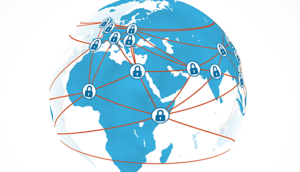Recently I had the pleasure to chat with Alex Tapscott, founder and CEO of Northwest Passage Ventures and coauthor—with his dad, the famed business theorist Don Tapscott— of the new book, “The Trust Protocol: How Blockchain Technology Will Change Money, Business and the World,” just published by Penguin’s Portfolio imprint. Together, Alex and I delved into the thorny issue of virtual currency, the uses of blockchain to make financial transactions, and what’s to come.
Here, Alex and I discuss some unresolved issues about cryptocurrencies, perhaps most importantly about who’s minding the store. Heading off hacker thieves is critical, as is—not surprisingly—satisfying regulators that such financial transactions via the various types of blockchains are indeed valid.
It’s not been easy, and that has led to a problem of trust. Alex mentioned to me Mt. Goxand Silk Road, two of the most notable scandals impacting digital currency, which hurt its early reputation badly, but he didn’t have to go back a couple of years. Most recently the Hong Kong bitcoin exchange Bitfinex said it had some $72 million stolen in a serious hack—an amount that has slumped, due to loss of confidence in the currency.
“Yes, there are a lot of issues unresolved right now, and many of them need to be solved in order for blockchains to reach their potential,” Alex said. “The questions of interoperability and scalability certainly are important, but so is the question of law enforcement. How do we make sure that criminals don’t use this, or if they do that we’re able to stop them? And they’re all governance questions really.”
Alex and I discussed the basic question: Who is going to lead and who is going to govern this brave new work of cryptocurrency. Will it be government or the industry itself?
“It’s a governance network, but with a small ‘g,’ ” Alex noted. “Now, that doesn’t mean that there isn’t an important role for government regulation. Regulators are really-critical stakeholders when you’re talking about things of value, like financial assets or money. They’ve always had a strong role in the financial services industry and they will continue to have one. But many of these issues are outside of their expertise. The ecosystem needs a standards network.”
Alex and I discussed the Internet’s standards network, the Internet Engineering Taskforce, that comes up with specific issues on HTML, HTTP, XML and other different protocols. Now, Alex said, the same thing needs to happen with blockchain transactions to enable the full utilization of digital currency.
“It’s going to require people from all these different siloes, Ethereum, bitcoin and private blockchains among them, to begin to discuss and communicate with each other. Technical standards are just one of many different issues that need to be resolved. There’s going to be a need for standards networks for everything from smart contracting, to title and deeds, to standards for financial assets. All these things are still left to be resolved.”
My conversation with Alex about cryptocurrencies was wide-ranging and intriguing. As he said to me about the future of digital monies, “A lot of banks and companies and governments are waking up to the potential of this technology. They love the idea of frictionless payments, of secure networks, of lower cost, of better speed.”
The world of crypto currency continues to evolve. Let’s see what’s next in this brave new world. Will all our payments be in crypto money? In future posts, we’ll delve into a lot more about the future of cryptocurrencies, including more about regulatory, trust and security aspects. Hope to see you there!



